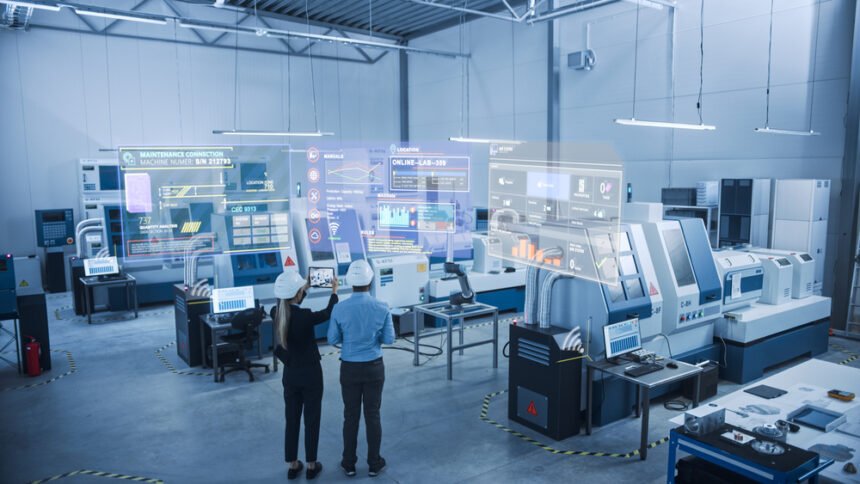The times are becoming tougher every day, and it doesn’t help that there’s a potential recession on the horizon. As early as now, you might be looking for ways to cut costs and keep your factory afloat. You understand that lowering costs is the key to surviving tough times, but you need help figuring out where to start. That’s where artificial intelligence or AI comes in.
By implementing AI technology in your factory, you can automate processes and use your resources better, along with other benefits. To know more, continue reading.
Optimizing Bill Of Materials
Bill of materials (BOM) is crucial to every factory’s production process. It’s a comprehensive list of all the raw materials, parts, and components required to produce a particular product. With AI, a business can optimize its BOM to improve its bottom line effectively.
AIs can do this by taking advantage of machine learning algorithms. These allow them to identify which materials and components are most cost-effective and provide recommendations on optimizing the BOM to reduce costs.
And with proper BOM management software, maximizing the money you’ll spend on your factory’s materials can be much easier.
Predictive Analytics
Thanks to machine learning, an AI can perform predictive analytics. It’s a process that analyzes data from your factory to identify trends and patterns. It can help you foresee future demands, identify areas for improvement, and optimize your operations. This technology can help you make data-driven decisions and improve your bottom line.
Moreover, predictive analytics is the backbone of the other benefits AI can offer factories, which can save them from a recession.
Predictive And Preventive Maintenance
Thanks to predictive analysis, AI in the industry sector is capable of predictive maintenance. It allows AI to monitor machines and predict when they’ll fail.
With predictive maintenance, factories can have the opportunity to fix their equipment and machines before they break down, resulting in minimized downtime and maintenance costs.
Aside from that, the results of predictive maintenance can also reduce the risk of accidents and extend the lifespan of your machines. And as accidents are reduced, factories can avoid lawsuits and pay up for workers’ comp.
Quality Control
With your quality control systems powered by a capable AI, you can identify defects in products with high accuracy. This reduces the need for manual inspection and improves the overall quality of your products.
Quality control backed by AI can help you avoid costly recalls and improve customer satisfaction. As a result, producing high-quality products with reduced labor costs can extensively allow a factory to maximize its earning potential.
Inventory Management
Many companies are slowly transitioning to using AI in their inventory management. This is because it can optimize the supply chain efficiently, reducing inventory logistics costs.
Inventory management systems with AI can monitor stock levels, as well as track and predict future demands in a timely and accurate manner. These ensure that a factory can have the right amount of stock at the right time. This effectively can minimize waste, reduce storage costs, and avoid stockouts, which are crucial in crises like a recession.
Energy Management
Energy management in factories has come a long way. And with the advent of AI and other smart systems, factories can significantly reduce their energy consumption and gain reasonable savings in their utility bills. AI can do that by monitoring energy usage in real-time and identifying areas where energy is wasted.
Production And Supply Chain Optimization
By using AI, you can eliminate—or at the very least reduce—instances of bottlenecks and inefficiencies in your factory’s production line. With predictive maintenance, a business can significantly lower the chances of experiencing downtime, increasing throughput and profit.
And to further recession-proof your company, AI can also perform supply chain optimization by finding the most efficient paths, routes, and modes of transportation. This is already common in other industries, particularly delivery and contracting. Aside from that, an AI-powered factory can also predict and mitigate supply chain disruptions, preventing delays and increasing logistics efficiency.
Autonomous Vehicles
AI is slowly changing the automotive industry. And one of its recent accomplishments is autonomous vehicles.
Autonomous vehicles aren’t widespread in factories yet, but they’re slowly becoming common. They can transport goods and materials without human intervention, reducing the risk of accidents and increasing efficiency. Moreover, having them around can let a factory lessen the need for manpower, which equates to massive savings.
Conclusion
By implementing AI in your factory, you can lower costs, increase efficiency, and survive any incoming recession. So, take the first step towards a more efficient future and explore the possibilities of AI in your factory today.

